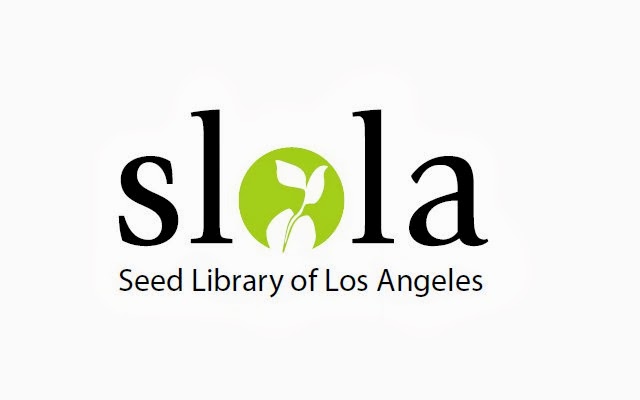In our Mediterranean climate, we can
grow a lot of different food plants – in fact, almost all of them.
The only time we find difficulty in growing plants that thrive
elsewhere is with the perennials and fruit trees.
The Ark of Taste is a living catalog of delicious and distinctive foods
facing extinction. By identifying and championing these foods we keep
them in production and on our plates.
Since
1996, more than 2,500 products from over 50 countries have been added
to the International Ark of Taste. Over 200 of these foods are
from the USA, and we are always seeking more edible treasures to
include.
The
Ark of Taste is a tool for farmers, ranchers, fishers, chefs,
grocers, seed libraries, educators and consumers to seek out and
celebrate our country's diverse biological, cultural and culinary
heritage.
More
information about discovering, nominating, tasting and championing
Ark of Taste varieties can be found
at: https://www.slowfoodusa.org/ark-of-taste-in-the-usa
Here are a list of
many of the Ark of Taste plants we can grow in our SoCal gardens:
Algonquian Squash (Cucurbita pepo)
Amish Paste Tomato (Lycopersicon
lycopersicum) – this is one of my favorites
Amish Pie Squash (Cucurbita maxima)
Arikara Yellow Bean (Phaseolus
vulgaris)
Aunt Molly’s Ground Cherry (Physalis
pruinosa)
Aunt Ruby’s German Green Tomato
(Lycopersicon lycopersicum)
Beaver Dam Pepper (Capsicum annuum)
Bodega Red Potato (Solanum
tuberosum)
Bolita Bean (Phaseolus vulgaris)
Boston Marrow Squash (Cucurbita
maxima)
Bradford Watermelon (Citrullus
lanatus v. Bradford 1)
Brown and White Tepary Bean (Phaseolus
acutifolius)
Burbank Tomato (I know it as “Burbank
Slicing Tomato) (Lycopersicon lycopersicum)
Canada Crookneck Squash (Cucurbita
moschata)
Candy Roaster Squash (Cucurbita
maxima)
Chalk’s Early Jewel Tomato
(Lycopersicon lycopersicum)
Chapalote Corn (Zea mays)
Cherokee Purple Tomato (Lycopersicon
Lycopersicum)
Cherokee Trail of Tears Bean
(Phaseolus vulgaris)
Chiltepin Pepper (Capsicum annuum
var. glabriusculum)
Christmas Lima Bean (Phaseolus
lunatus)
Crane Melon (Cucumis melo)
Datil Pepper (Capsicum chinense)
Djena Lee’s
Golden Girl Tomato (Lycopersicon lycopersicum)
Early Blood Turnip-Rooted Beet (Beta
vulgaris)
Early
Rose Potato (Solanum tuberosum)
Fish Pepper (Capsicum annuum)
Four Corners Gold Bean (Phaseolus
vulgaris)
Garnet Chili Potato (Solanum
tuberosum)
German Pink Tomato (Lycopersicon
lycopersicum)
Gilfeather Turnip (Brassica rapa
subsp. rapa)
Green Mountain Potato (Solanum
tuberosum)
Hanson Lettuce (Lactuca sativa)
Hayman Sweet Potato (Ipomoea batatas
v. Hayman)
Hidatsa Red Bean (Phaseolus
vulgaris)
Hidatsa Shield Figure Bean (Phaseolus
vulgaris)
Hinkelhatz
Hot Pepper (Capsicum annuum)
Hopi Mottled Lima Beans (Phaseolus
lunatus)
Hussli Tomato Pepper (Capsicum
annuum)
Inchelium Red
Garlic (Allium sativum)
Inciardi
Paste Tomato (Lycopersicon lycopersicum)
Ivan
Tomato (Lycopersicon lycopersicum)
Ivis White Cream Sweet Potato (Ipomoea
batatas)
Jacob’s Cattle Bean (Phaseolus
vulgaris)
Jimmy Nardello’s Sweet Italian Frying
pepper (Capiscum annuum)
Jimmy Red Corn (Zea mays indentata)
Kentucky Limestone
Bibb Lettuce (Lactuca sativa)
King Philip Corn (Zea mays)
Kleckley
Watermelon (Citrullus lanatus)
Landrace Red Creole Onion (Allium
cepa)
Lina
Cisco’s Bird Egg Bean (Phaseolus vulgaris)
Livingston’s Globe Tomato
(Lycopersicon lycopersicum)
Livingston’s
Golden Queen Tomato (Lycopersicon lycopersicum)
Long Island Cheese Pumpkin (Cucurbita
moschata)
Makah Ozette Potato (Solanum
tuberosum subsp. andigena)
Marrowfat Bean (Phaseolus vulgaris)
Martin's Carrot Pepper (Capsicum
annuum)
Mayflower Bean
(Phaseolus vulgaris)
Mississippi Silver Hull Bean-Crowder
Cowpeas (Vigna unguiculata)
Moon & Stars
Watermelon (Citrullus lanatus)
Nancy Hall Sweet Potato (Ipomoea
batatas)
New Mexican Native Chile Pepper
(Capiscum annuum)
New Mexico Native
Tomatillo (Physalis philadelphica)
O'odham Pink Bean (Phaseolus
vulgaris)
Orange Oxheart
Tomato (Lycopersicon lycopersicum)
Pantin Mamey Sapote (Pouteria
sapota)
Purple Straw Wheat (Triticum
aestivum)
Radiator Charlie’s Mortgage Lifter
Tomato (Lycopersicon lycopersicum)
Red McClure Potato
Rio Zape Bean (Phaseolus vulgaris)
Rockwell Bean
(Phaseolus vulgaris)
Roy’s Calais Flint Corn (Zea
mays)
Santa Maria Pinquitos Bean (Phaseolus
vulgaris)
Sea Island White Flint Corn (Zea
mays)
Seashore Black Rye
(Secale cereale)
Seminole Pumpkin (chassa howitska)
(Cucurbita moschata)
Seven Top Turnip (Brassica rapa)
Sheboygan Tomato
(Lycopersicon lycopersicum)
Sheepnose Pimiento (Capiscum annuum)
Sibley Squash (Cucurbita maxima)
Spanish Roja Garlic (Allium
sativum)
Speckled Lettuce (Lactuca sativa)
Stowell's Evergreen Sweet Corn (Zea
mays)
Sudduth Strain
Brandywine Tomato (Lycopersicon lycopersicum)
Hubbard Squash (Cucurbita maxima)
Tennis Ball Lettuce (Lactuca sativa)
Thelma Sanders
Squash (Cucurbita pepo)
True Red Cranberry Bean (Phaseolus
vulgaris)
Turkey
Craw Bean (Phaseolus vulgaris)
Turkey Hard Red Winter Wheat (Triticum
aestivum)
Tuscarora White Corn (Zea mays)
Valencia Tomato
(Lycopersicon lycopersicum)
Wenk’s Yellow Hot Pepper (Capsicum
annuum)
White African
Sorghum (Sorghum bicolor)
White Cap Flint Corn (Zea mays)
White Sonora Wheat (Triticum
aestivum)
White Velvet Okra (Abelmoschus
esculentus)
Yellow Cabbage Collard (Brassica
oleracea)
Yellow-Meated Watermelon (Citrillus
lanatus)
The beans, lettuces, peppers, tomatoes
and wheats are very easy for saving seeds
The many okras, sorghums and squashes
are a little harder but totally do-able.
Watermelons are hard to grow here, but
if you can get it to grow, the good news is that no one will have a
watermelon to cross pollinate your watermelon.
david

No comments:
Post a Comment